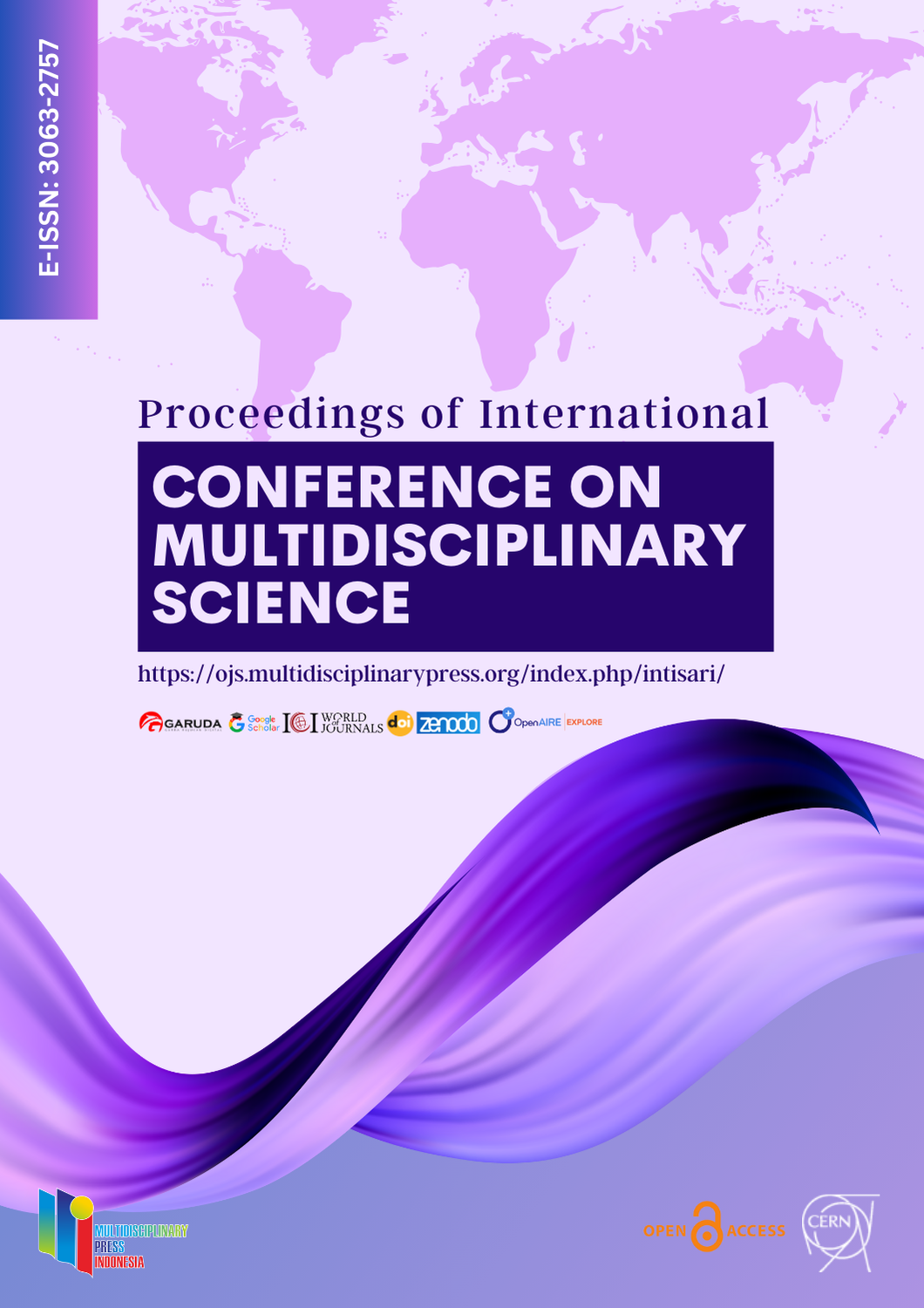Performance Determinants
Keywords:
Integrity, Competence, Motivation, Job Satisfaction, Work DisciplineAbstract
This research aims to examine the influence of integrity, competency and motivation on job satisfaction mediated by work discipline at the Bank Indonesia Representative Office, North Sumatra Province. Production factors are needed to produce human output, but without human labor, commodities and services will not provide the same benefits. The results of this research are as follows: Work Discipline has a positive and significant effect on Job Satisfaction with an original sample value of 0.422 and ap value of 0.000. Integrity has a positive and significant effect on Work Discipline with an original sample value of 0.358 and ap value of 0.000. Integrity has a positive and significant effect on Job Satisfaction with an original sample value of 0.234 and ap value of 0.008. Competence has a positive and significant effect on Work Discipline with an original sample value of 0.234 and ap value of 0.007. Competency has a positive and insignificant effect on Job Satisfaction with an original sample value of 0.044 and ap value of 0.321. Motivation has a positive and significant effect on Work Discipline with an original sample value of 0.394 and ap value of 0.000. Motivation has a positive and significant effect on Job Satisfaction with an original sample value of 0.272 and ap value of 0.002. Integrity has a positive and significant effect on Job Satisfaction through Work Discipline with an original sample value of 0.155 and ap value of 0.003. Competence has a positive and significant effect on Job Satisfaction through Work Discipline with an original sample value of 0.103 and ap value of 0.013. Motivation has a positive and significant effect on Job Satisfaction through Work Discipline with an original sample value of 0.170 and ap value of 0.004.
Downloads
References
Arikunto, Suharsimi. (2014). Prosedur Penelitian Suatu Pendekatan Praktik. Jakarta: Rineka Cipta.
A.A. Anwar Prabu Mangkunegara. 2017. Manajemen Sumber Daya Manusia
Bahri, S., (2018), Metode Penelitian Bisnis (Edisi ke-1), Yogyakarta, AND.
Darodjat, Tubagus Achmad. 2015. Konsep- Konsep Dasar Manajemen Personalia. Surabaya: Refika Aditama.
Ganiem, L. M. (2018). Teori Komunikasi AntarPribadi. Kencana.
Husein Umar. 2014. Metode Penelitian Untuk Skripsi dan Tesis Bisnis. Edisi-2. Cetakan ke-13. Jakarta : Rajawali Pers.
Kasmir. 2016. Manajemen Sumber Daya Manusia (Teori dan Praktik). Depok: PT Rajagrafindo Persada
Letsoin, V. R., & Ratnasari, S. L. (2020). Issn : 2085-9996 Pengaruh Keterlibatan Karyawan , Loyalitas Kerja Dan Kerjasama Tim Terhadap Kinerja Karyawan Influence Of Employee Involvement , Work Loyalty And Team Cooperation To Employee Performance Abstrak Pendahuluan Kinerja Adalah Hasil Kerja Seca. 9(1), 17–34.
Salamun dkk. 2017. Persepsi tentang Etos Kerja: Kaitannya dengan Nilai Budaya Masyarakat Daerah Istimewa Yogyakarta. Yogyakarta: Kementerian Pendidikan dan Kebudayaan RI.
Siagian, S. (2020). Manajemen Sumber Daya Manusia. Jakarta; Penerbit PT Bumi Aksara.
Siregar, Syofian. (2014). Metode Penelitian Kuantitatif Dilengkapi Dengan Perbandingan Perhitungan Manual dan SPSS. Jakarta : Prenadamedia Group.
Supardi. (2014). Kinerja Karyawan. Jakarta: Ghalia.
Wijono, Sutarto, 2015. Psikologi Industri dan Organisasi, Jakarta: Kencana.
Yuniarsih, Tjuju. 2017. Kinerja Unggul Sumber Daya Manusia. Bandung: Rizqi Press
Downloads
Published
How to Cite
Issue
Section
Categories
License
Copyright (c) 2024 Muhammad Imam, Mesra B

This work is licensed under a Creative Commons Attribution 4.0 International License.





